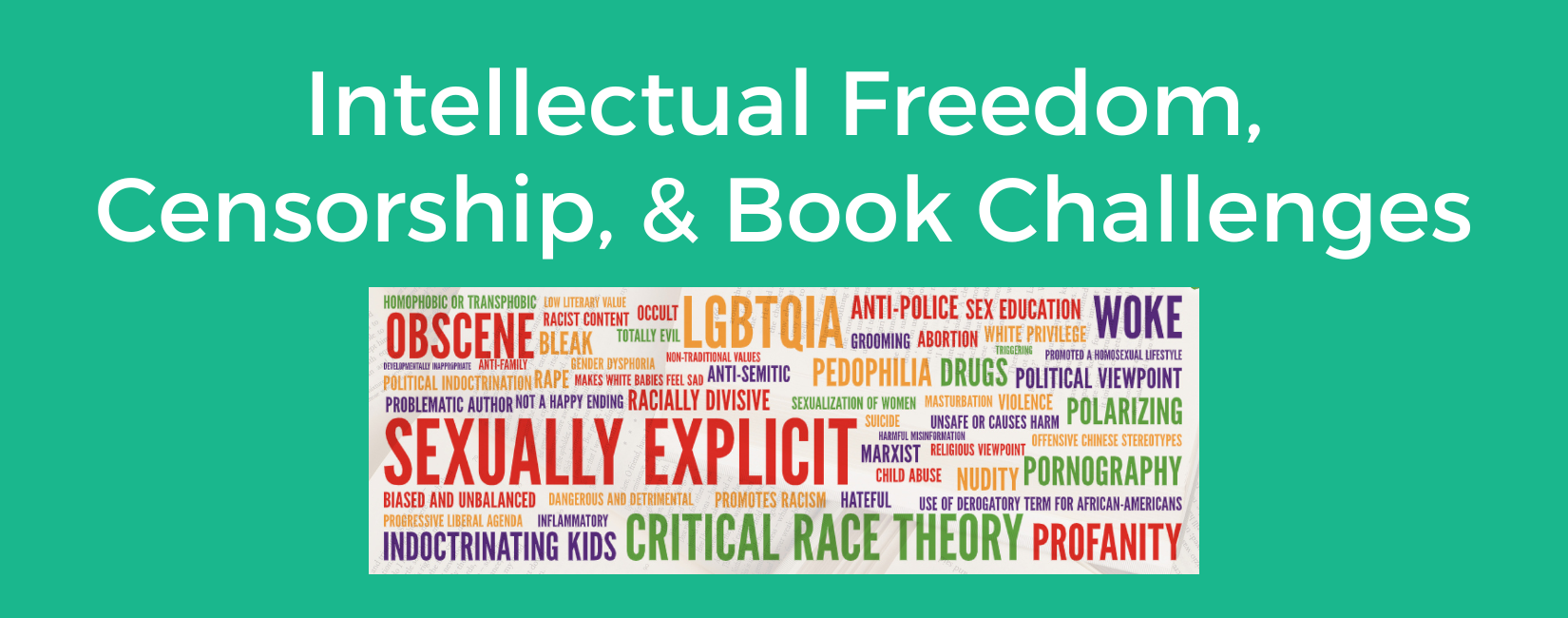Book challenges in America are not new, however recently there has been an unprecedented increase in their numbers. An April report in PEN America cites 1,586 instances of individual books being banned between July 2021 and March 2022. The sheer number of books being banned raises numerous concerns over improper censorship and infringement of First Amendment rights for readers of all ages.
To help you navigate this subject, we’ve compiled some background information, and resources for further reading.
What is intellectual freedom?
The Intellectual Freedom Manual defines Intellectual Freedom as the right of every individual to seek and receive information from all points of view without restriction. It provides for free access to all expressions of ideas through which any and all sides of a question, cause, or movement may be explored.
What is censorship?
The American Library Association defines censorship as the suppression of ideas and information that some individuals, groups, or government officials find objectionable or dangerous. It is no more complicated than someone saying, “Don’t let anyone read this book, or buy that magazine, or watch that movie, because I object to it!” This also includes restricting access based on age and other characteristics. Censors pressure public institutions, like libraries, to suppress and remove information they judge inappropriate or dangerous from public access, so that no one else has the chance to read or view the material and make up their own minds about it.
What do intellectual freedom and censorship have in common?
Censoring certain materials limits the right every individual has to information. The presence of any particular materials in a library collection does not imply endorsement of the ideas expressed in those materials. The library is simply providing information on all points of view.
What is a book challenge?
A challenge is a request for certain materials to be removed or restricted based on the opinions of a group or person. Banning is one result of a challenge–the removal or restriction of these materials. Most challenges are unsuccessful and materials are kept on the shelf.
What kinds of materials are challenged, who’s challenging, and why?
All kinds of materials are challenged – from books to games. The most common reasons for challenging materials as reported to the Office of Intellectual Freedom were: sexually explicit content, offensive language, and material unsuited to any age group. The PEN article mentioned above compiled statistics showing that 41% of book bans were initiated, not by concerned local community members, but by state officials or elected lawmakers.
While most challenges are initiated by concerned parents, the Library Bill of Rights states that, “Librarians and governing bodies should maintain that parents—and only parents—have the right and the responsibility to restrict the access of their children—and only their children—to library resources.” Censorship by librarians of constitutionally protected speech, whether for protection or for any other reason, violates the rights and privileges identified in the First Amendment.
Notable First Amendment court cases
How can you help?
Talk with us!
Rather than challenging something because it doesn’t align with your opinions, talk with us about ordering something that would support your point of view.
Read some of the most challenged books from 2021:
Refresh your knowledge of relevant topics:
- Library Bill of Rights
- Freedom to Read statement
- Chillicothe Public Library District Materials Selection Policy
- Includes our Request for Reconsideration form
The library is here to help you find the information you need and want. Utilize the library’s resources; ask the librarians for help in finding what you want, before considering restricting what others can access. Browse our collection online or request something we don’t already have.

